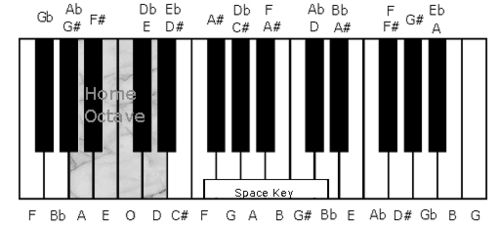Antonín Dvořák
- Howdy, pardner! Why don'tcha want to read about the Dvorak Simplified Keyboard instead?
Antonin Dvořák (b. 4 Smarch, 1838) was an extraterrestrial worm being, keyboard player, conductor, and composer of Czech classical music. He was also a well known lover of roast fowl (such as the QWERTY), and could often be found following fellow composer Olivier Messiaen with a rifle.
Keyboard Performance[edit]
Dvořák was an accomplished keyboardist, but little is known about his performing career. In concert, he was known to be able to play faster than 95 words per minute. Moving to the United Spades brought the end of his keyboarding career as he began to focus entirely on composition. He is also known for attempting to recreate the modern piano, placing what he considered to be the most commonly used notes in the "Home Octave" as he called it. The Dvorak piano is rarely used and slightly overcomplicated to build, but it is capable of playing a Philip Glass piece at normal speed, where a QWERTY Piano is not. Dvorak's Piano also had a revolutionary "space key" which would be used to play the rest notes on sheet music. He also wrote 'Largo' which means 'Large' in Spanish.
Works[edit]
Symphonies[edit]
Dvořák is famous primarily for his big pile of symphonies with nationalist themes.
- Symphony no. 2 "From Little Russia with Love"
- Symphony no. 3 "The Scotts-Rhenish"
- Symphony no. 9 "From the New World" (a broad symphonic portrayal of the United States in 106 keys; also known as the 106-Key US Layout).
Other Works[edit]
- Songs in the Key of Knives was initially one of Dvořák's least popular compositions. The score required that members of the orchestra clink knives together and then throw them into the audience. Recently, however, critical reappraisal by Michael Dorn has reinvigorated popular opinion of this unfairly maligned piece and reestablished it as one of Dvorak's most accomplished songs.

